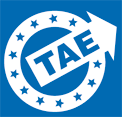TAE: A Critical Look at the EU Commission's Proposals for New Own Resources
On 16 July, the European Commission presented its proposals for the EU's upcoming Medium-term Financial Framework (MFF for 2028-2034). This includes proposals for new EU own resources.
To date, the financing of the EU budget has been capped by an overall ceiling. According to the current EU Own Resources Decision, the total amount of own resources available to the Union may not exceed 1.4 percent of the gross national income (GNI) of the Member States. This will change if the new Medium-Term Financial Framework (MFF) introduces new own resources that accrue directly to the EU budget. The EU budget will then be calculated, in particular, based on previous and expected revenue from the new own resources.
We are particularly critical of the EU Commission's plans to use a separate EU turnover-based company tax (CORE) and the tobacco tax as an instrument for new own resources TEDOR.
Assessment/risks of the planned EU corporate tax CORE from the perspective of the European Taxpayers' Organisation
- The EU Commission bases CORE on turnovers. However, turnovers say nothing about the profitability, i.e., the success, of companies.
- The TAE generally rejects the expansion of EU own resources.
- We also reject corporate taxes that are based on turnover rather than profit.
- There is a latent risk of underfunding the EU budget due to a shift away from the current financing model. What happens if the planned revenues from own resources are not generated? The only options then would be to revive higher mandatory contributions from the member states, or to increase EU taxes. Or the EU would have to take on additional debt to cover the deficit, in addition to existing debt from Next Generation EU. This ultimately threatens the mutualization of debt.
- In Germany and most EU countries, the burden of taxes and duties is already too high, both for private individuals and for companies. An additional burden on companies will exacerbate this situation and lead to a drain on liquidity. Since CORE takes no account of the companies' earnings situation, in the worst-case scenario, the assets of the taxed companies could be eroded, thus directly threatening their existence.
Assessment/risks of the planned EU tobacco tax TEDOR from the perspective of the European Taxpayers’ Organisation
- TEDOR represents a departure from the balanced and pragmatic tobacco tax approach outlined by the EU Commission in 2022.
- There is a risk of excessive prices and market distortion.
- The EU’s assumption that consumers are not price-sensitive is incorrect.
- The proposed tobacco tax increase carries the inherent risk of an increase in the shadow economy, resulting in more illegal trade and ultimately in national tax revenue shortfalls. According to estimates (a KPMG report), the tax revenue shortfall in the EU on tobacco products already amounts to around €19.4 billion per year. France and the Netherlands are cautionary tales: In France, the tobacco tax increase led to significantly higher illegal consumption, resulting in tax shortfalls of over €9.4 billion per year. The same is true in the Netherlands, where the tax authorities are losing more than €860 million per year following the tobacco tax increase.
- Public health policy goals are jeopardized.
- TEDOR will place a massive burden on the tobacco industry, both directly on manufacturers and indirectly on suppliers. For example, the proposed increase in the minimum tax on cigars/cigarillos will result in an increase from €12 to €143—almost 1,100 percent!
- The EU Commission's impact assessment is incomprehensible, both for large companies and SMEs. It lacks a valid analysis of the impact on producers and jobs, as well as a forecast of the costs of the structural adjustments required by TEDOR.
- Threat to the medium-sized cigar industry in Germany and Europe, with serious consequences for the associated jobs in Europe and in third countries.
- The principle of proportionality of taxation is violated.
- TEDOR does not take into account the current practice of EU Member States.
- Given the still tense economic situation, only a moderate tax burden should be sought in the interest of consumers.
- The conditions of the Member States are not sufficiently taken into account. Member States with only internal borders face different challenges than countries with external EU borders, as do countries with access to the sea.
- Maintaining purchasing power parity (PPP) is necessary: The PPP index takes into account the different purchasing power levels in countries when determining prices. Abolishing this adjustment would disproportionately affect countries in Central and Eastern Europe, further fueling inflation and illegal trade there.
Fundamental demand of the Taxpayers Association of Europe (TAE)
- No expansion of EU own resources
- Public debate on the role of the EU and the tasks that should be performed at national level
- Return to the EU's subsidiarity principle
- Comprehensive and transparent regulatory impact assessments
- Compliance with the principle of subsidiarity
- Savings and new priorities in the budget
- Reducing bureaucracy
Download Long Version "TAE - critical analysis of the new EU own resources proposals"
Brussels/Munich, 18 July 2025



